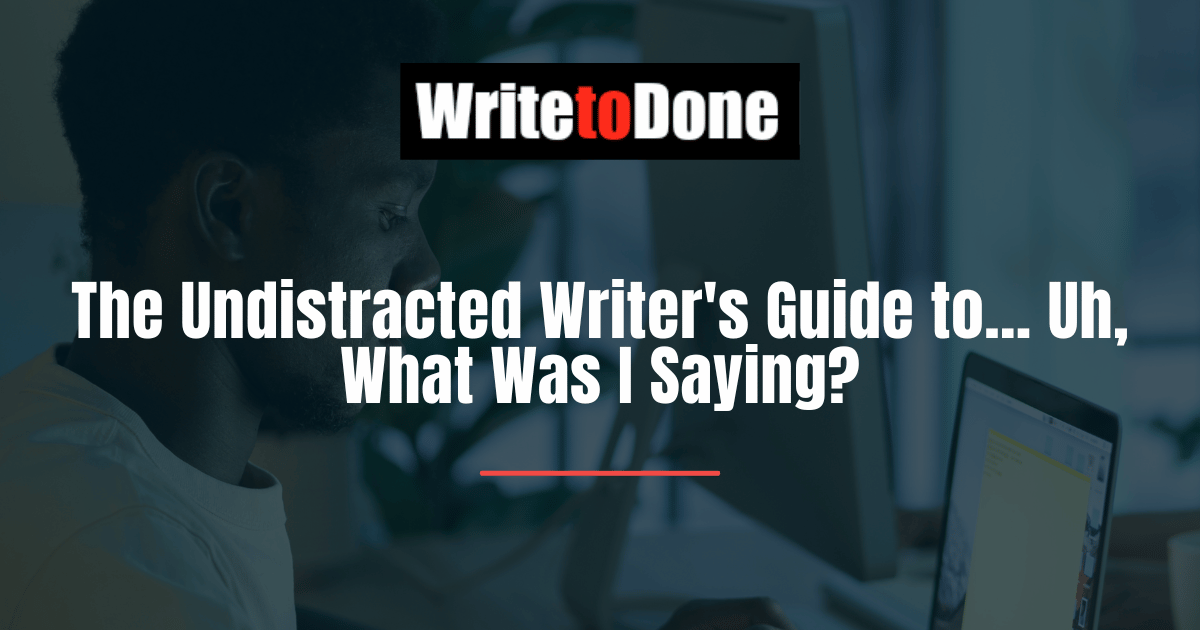Our world is a busy one, full of distractions and messages vying for our time and attention. Everywhere you look, someone is selling something.
Life is too crazy, too hectic, for us to pay close notice. Advertising has trained our ears and eyes to skim and ignore. And we do just that.
We tune out and drift, bouncing from on activity to the next. We open multiple browser windows, constantly check email, and struggle to listen on the person in front of us.
Yes, everyone does this. It’s the reality of the 21st century. But writers cannot.
If you’re going to say something worth hearing, you’re going to need to focus. You’ll need to be intentional — to break through the distractions and just write.
But how do you do that? Here are three tips:
1. Get up early (or stay up late)
Set aside a time of day when you are least likely to be distracted and write. Don’t edit or tweak. Just write.
Early morning or nighttime are ideal, because these times are typically when others aren’t trying to get a hold of you.
For me, it took some frustration before I learned how to do this. People kept calling and emailing me, and I couldn’t focus on the writing. Finally, I started getting up at 5am every morning to write, and in four months I had finished my first book.
2. Use tools to help you focus
Let’s face it. You and I are not very good at self-discipline.
Most of us, when we’re dieting, will eat a cookie when it’s placed in front of us. So we need to find ways to get rid of the temptations. Having some helpful tools can help:
- A good, distraction-free word processor. Ommwriter is good, as is any basic text editing program. (I actually do most of my writing in Text Edit, a very simple text editor for Mac.)
- An easy way to take notes. Evernote is good, as is a good old-fashioned notebook (some writers prefer Moleskine, but any will do). The benefit of using an application is you can search your notes and find things quickly. But whatever works is fine.
- A handheld dictionary and stylebook. I like having the AP Stylebook and Merriam-Webster Dictionary handy to look up words, phrases, etc., without having to go to Google and get lost in a sea of distraction.
3. Write without editing
The biggest time-waster for writers is editing.
When you clean up your writing as you go, you’re basically doing two jobs. So it makes sense that it takes twice as long, right? Right.
Instead, just try to write as quickly as possible. Just get the words on the paper. Your creative brain often works more quickly than your editorial one, so get as much done in that first draft as you can. Then go back and edit later.
Also, editing is a distraction trap, because you can spend hours tweaking hundreds of words. You can get lost in miles of reading material, doing so-called research. But what are you really doing? Stalling.
Don’t worry about grammar or punctuation or even typos — not at first. Those are easy to fix afterwards. Just write. You can always go back and edit later. But once a good idea is lost, it’s lost forever.
So are you ready to do the work of a real writer? Time to focus.
Let’s hear from you: What’s your #1 distraction when writing?
This guest post is by Jeff Goins of GoinsWriter.com. He lives in Nashville. You can follow him on Twitter and Facebook. He recently released a new eBook called, You Are a Writer (So Start Acting Like One), which helps writers believe in themselves and master their craft. Get it here.
















